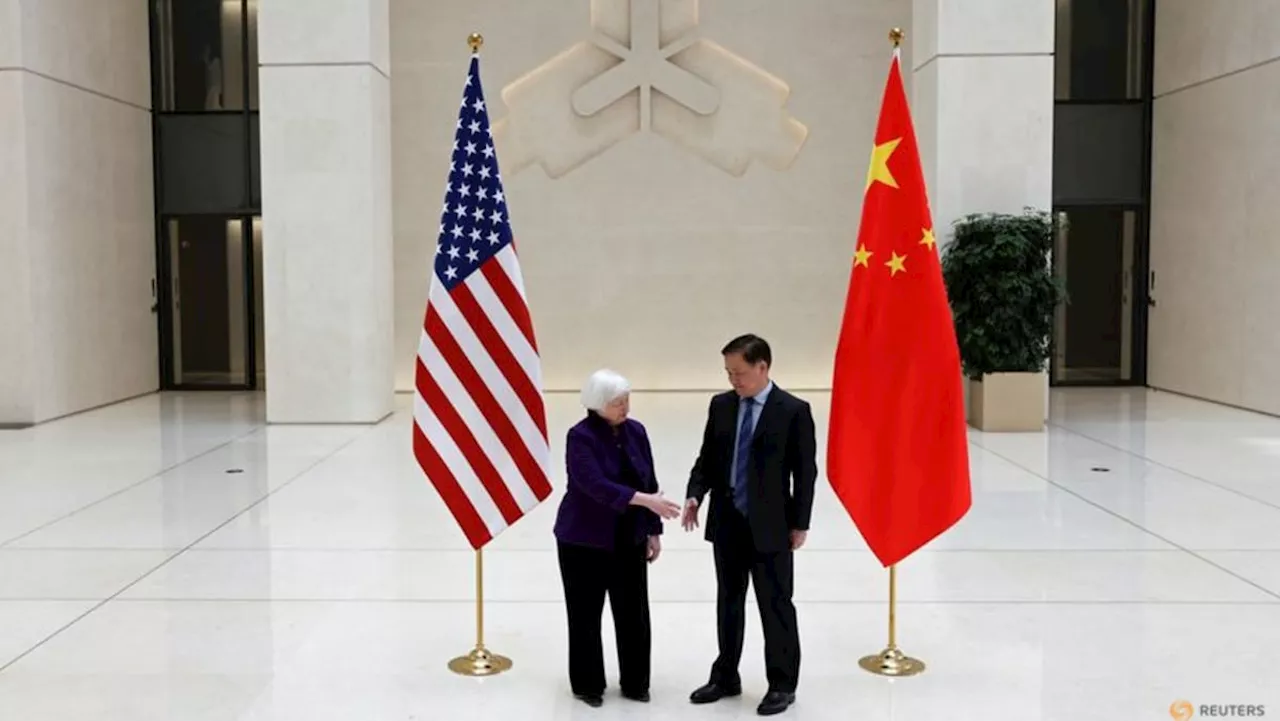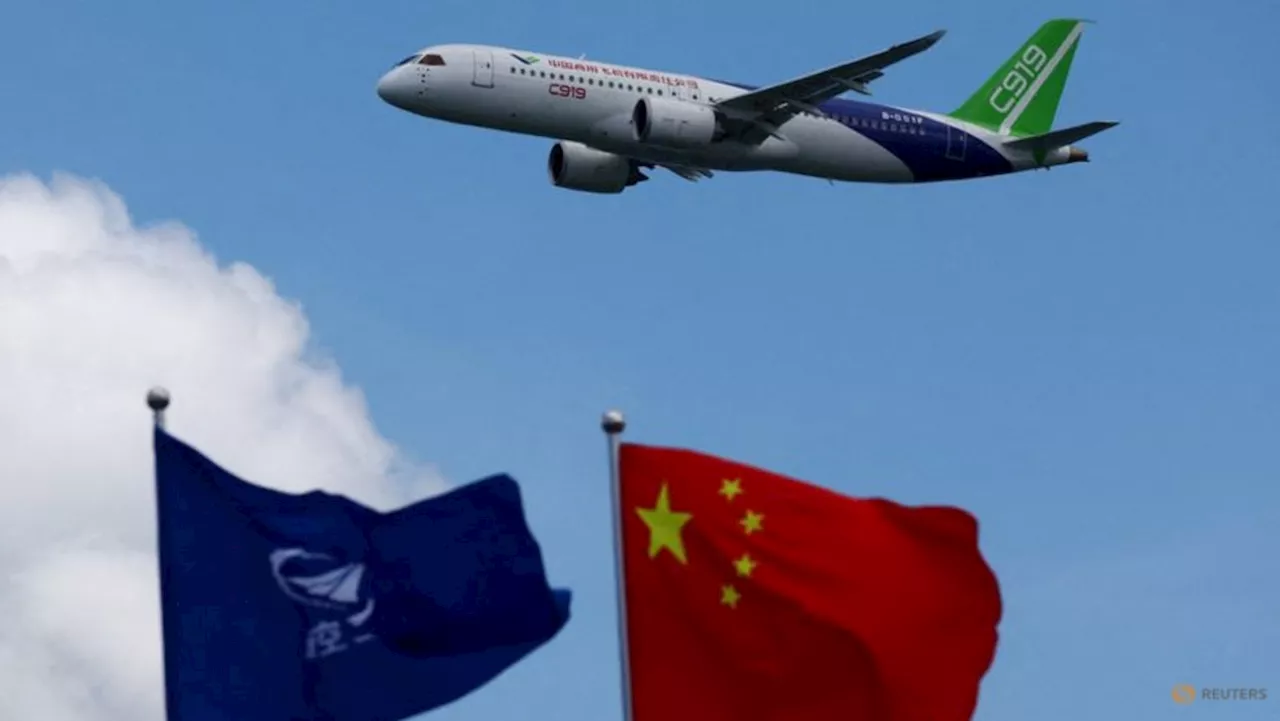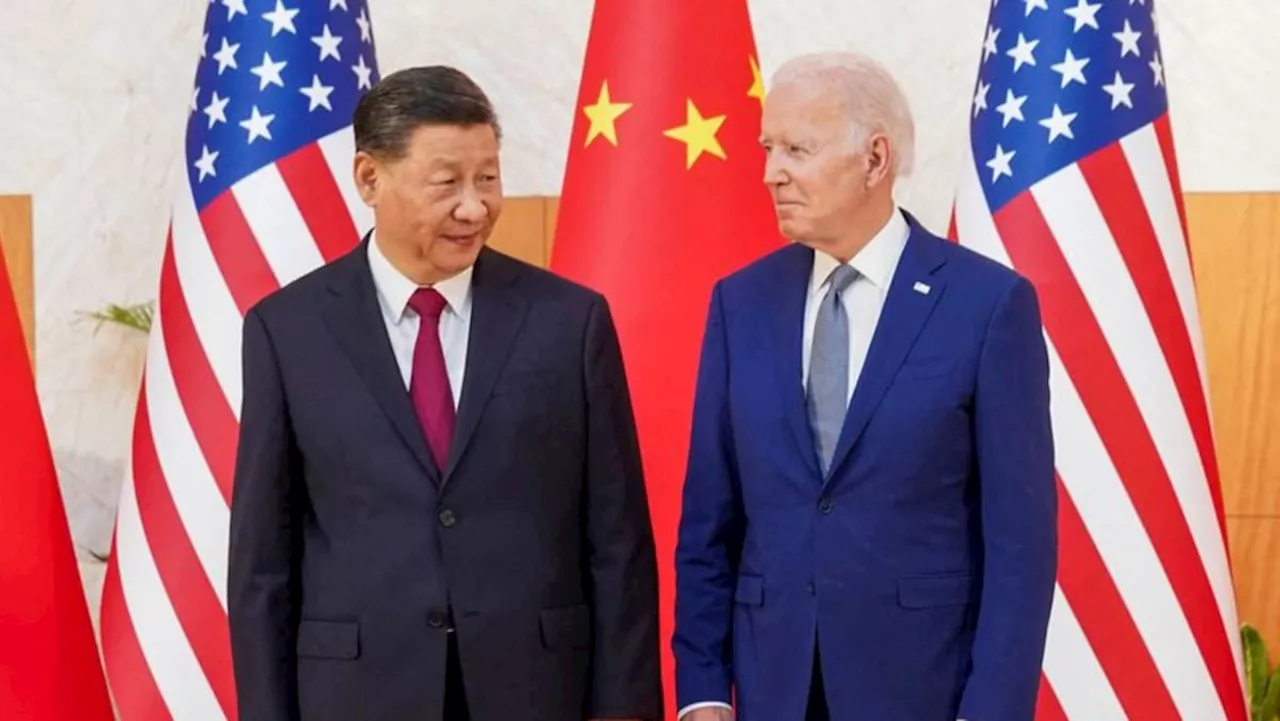Understanding the nuances beyond the “securitisation of everything” can help the world navigate the delicate and complex US-China relationship, says the S Rajaratnam School of International Studies’ Chang Jun Yan.
US President Joe Biden meets with Chinese President Xi Jinping on the sidelines of the G20 leaders' summit in Bali, Indonesia, Nov 14, 2022. SINGAPORE: Here is a typical description of United States - China relations: The “securitisation of everything” has led to the two countries seeing areasto higher education. It has led to a lack of trust, hampering mutual cooperation and the rest of the world may eventually have to pick sides.
Over the years, the US has criticised what it perceives as unfair Chinese economic practices, including export subsidies, currency manipulation, poor labour and environmental regulations, and espionage. Crucially, various policies have generally failed to resolve the trade imbalance between the two. American officials have long pointed the finger at Chinese hackers for cyberattacks, including one on the Pentagon in 2007. More recently in March, the US justice department claimed that aagainst China. But this was a culmination of - not a sudden rupture from - US efforts to combat the economic and cyberthreats. Unsurprisingly, US President Joe Biden’s administration has continued these.
To the US, China is a military risk towards peace and stability ; and a political risk in terms of changing the rules-based order, unlike Russia which has outright threatened these. There can be a more calculative trust, however, based upon expectations about behaviour which may be created through enforcement, supervision or other mechanisms. So, cooperation may occur even between untrustworthy parties, as long as there are payoffs and structures in place so that the other party will act appropriately.
Other countries have their own autonomy, to protect and advance their own interests first and foremost. Indonesia, for instance, has practised a “free and active” foreign policy since it became independent, “rowing between two reefs” during the Cold War.
日本 最新ニュース, 日本 見出し
Similar News:他のニュース ソースから収集した、これに似たニュース記事を読むこともできます。
 Commentary: US is rejecting 200 years of economics to block China clean techUS Treasury Secretary Janet Yellen’s plan is a protectionist disaster that will impede the path to net zero, says David Fickling for Bloomberg Opinion.
Commentary: US is rejecting 200 years of economics to block China clean techUS Treasury Secretary Janet Yellen’s plan is a protectionist disaster that will impede the path to net zero, says David Fickling for Bloomberg Opinion.
続きを読む »
 Commentary: Navigating China’s influence and expanding role in Southeast AsiaThere are nuances to geopolitical dynamics in the region and China needs to address the lack of confidence that it will "do the right thing”, says this ISEAS-Yusof Ishak Institute researcher.
Commentary: Navigating China’s influence and expanding role in Southeast AsiaThere are nuances to geopolitical dynamics in the region and China needs to address the lack of confidence that it will "do the right thing”, says this ISEAS-Yusof Ishak Institute researcher.
続きを読む »
 Commentary: Are EVs a form of China’s soft power in Southeast Asia?The rapid expansion of Chinese electric vehicles and related investments in Southeast Asia is no fluke, says Intellisia Institute's Xirui Li.
Commentary: Are EVs a form of China’s soft power in Southeast Asia?The rapid expansion of Chinese electric vehicles and related investments in Southeast Asia is no fluke, says Intellisia Institute's Xirui Li.
続きを読む »
 Commentary: China’s homegrown COMAC jet has its eye on Southeast Asia after Singapore debutThe COMAC C919 stole the limelight at the Singapore Airshow and went on a demonstration tour of Southeast Asia, but it will still be a hard sell outside of China for now, says Endau Analytics’ Shukor Yusof.
Commentary: China’s homegrown COMAC jet has its eye on Southeast Asia after Singapore debutThe COMAC C919 stole the limelight at the Singapore Airshow and went on a demonstration tour of Southeast Asia, but it will still be a hard sell outside of China for now, says Endau Analytics’ Shukor Yusof.
続きを読む »
 Philippines says 3 soldiers hurt by China water cannon attack in South China SeaMANILA — Three Philippine troops were injured in the latest China Coast Guard water cannon attack on a Filipino supply vessel near a South China Sea reef, Manila's national security adviser said on Sunday (March 24).
Philippines says 3 soldiers hurt by China water cannon attack in South China SeaMANILA — Three Philippine troops were injured in the latest China Coast Guard water cannon attack on a Filipino supply vessel near a South China Sea reef, Manila's national security adviser said on Sunday (March 24).
続きを読む »
 China vows to safeguard its territorial integrity after South China Sea incidentThe remarks come a day after an incident in disputed waters in the South China Sea.
China vows to safeguard its territorial integrity after South China Sea incidentThe remarks come a day after an incident in disputed waters in the South China Sea.
続きを読む »
